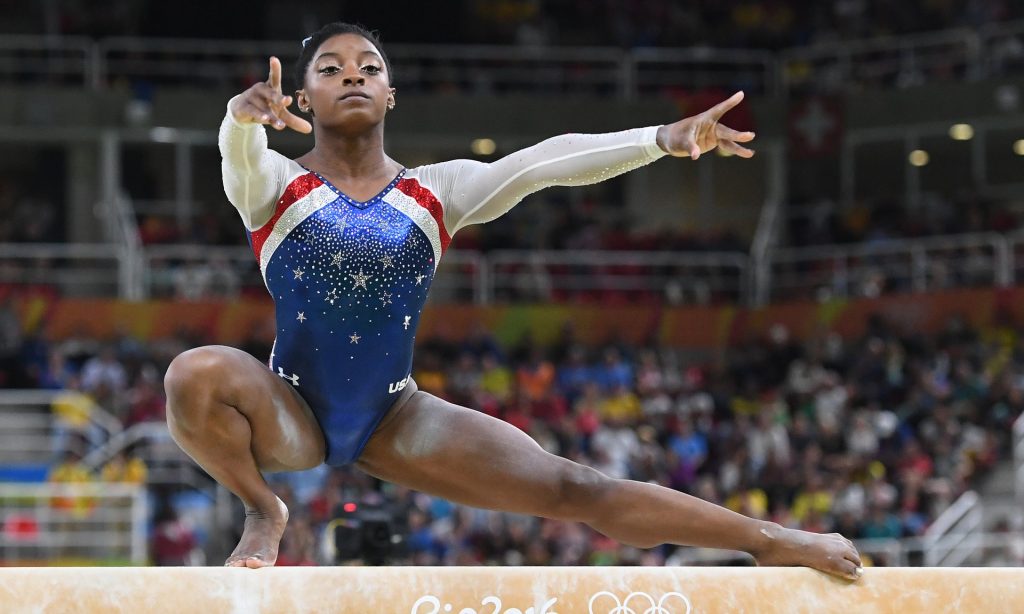Olympic gymnast Simone Biles has always been forthright about her mental health. In July, she caused a media circus when she withdrew from the Tokyo Olympics team final and individual all-around competitions, later admitting that she’d quit taking care of her mental health amid the tremendous pressure to perform.
Now Biles—the most decorated gymnast in the world—is speaking out about her mental health journey in a New York cover story, revealing that she “should have quit way before Tokyo” because of the trauma and media fallout surrounding Larry Nassar’s sexual abuse was overwhelming to deal with.
“I should have quit way before Tokyo when Larry Nassar was in the media for two years. It was too much,” the 24-year-old gymnast told New York. “But I was not going to let him take something I’ve worked for since I was 6 years old. I wasn’t going to let him take that joy away from me. So I pushed past that for as long as my mind and my body would let me.”
This isn’t the first time she’s spoken up about her mental health. In 2018, two years after news broke about other members of the US gymnastic team, Biles shared that she too was a survivor of sexual abuse by Larry Nassar, the former USA Gymnastics team doctor. Earlier this year, she told viewers on her Facebook docuseries Simone vs. Herself that the abuse triggered depression. As Biles sought psychotherapy to cope with the trauma, she continued to push through training and competitions.

Biles isn’t alone. On average, there are nearly 500,000 cases of sexual assault each year in the United States; women and girls in particular experience assault at high rates, as do transgender individuals. As Biles experienced, sexual assault can significantly affect a survivor’s mental health for years to come, potentially leading to depression, post-traumatic stress disorder, substance use disorder, disordered eating, and anxiety.
For many survivors of assault, the cycle doesn’t stop after one incident. Studies suggest sexual assault perpetrators often repeat their offenses, and that being assaulted once puts a person at higher risk for being sexually assaulted again, which can create compounding trauma and mental health effects. But the likelihood of repeat trauma doesn’t imply survivors of sexual assault are at all at fault in their abuse. Rather, previous experiences of abuse are simply an indicator that it may occur again, as the data shows.
For Biles and her teammates, lack of protection by powerful institutions may have played a role.
“I believe, without a doubt, that the circumstances that led to my abuse and allowed it to continue are directly the result of the fact that the organizations created by Congress to oversee and protect me as an athlete, USA Gymnastics, and the United States Olympic & Paralympic Committee, failed to do their jobs,” Biles told New York.
While Biles became an advocate for mental health in the media, some fans and commentators criticized her withdrawal. But Biles has been open that she doesn’t regret her decision or its timing, because she learned to advocate for herself.
“Everybody asks, ‘If you could go back, would you? ” Biles said in the cover story. “No. I wouldn’t change anything because everything happens for a reason. And I learned a lot about myself—courage, resilience, how to say no and speak up for yourself.”

